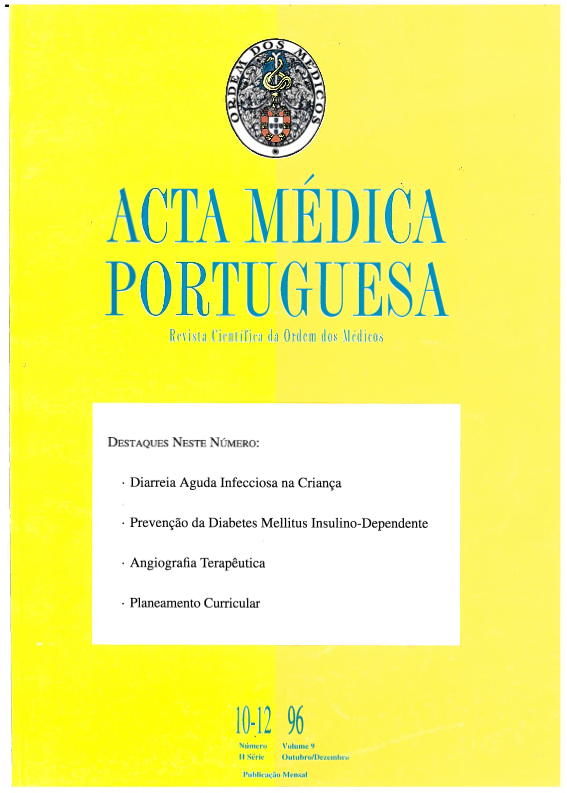A resurgence of rheumatic fever. New causes or old attitudes?.
DOI:
https://doi.org/10.20344/amp.2612Abstract
Bearing in mind that in the last years there has been an increase in rheumatic fever episodes, the authors evaluate the cases recently observed in the department. The data of 3 children born and living in Portugal, the first known outbreak of rheumatic fever observed between June 93 and March 94, were examined. One case presented polyarthritis, another polyarthritis and carditis and the third chorea and carditis. In just one case was the diagnosis of rheumatic fever considered in the beginning, and over-all, failures in the diagnosis and treatment of tonsillitis, and in echocardiographic diagnosis were detected. In view of these examples, the authors conclude that the increasing incidence and morbidity of rheumatic fever is more probably due to forgetfulness of old attitudes than to new causes. Delay in the diagnosis and errors in secondary prophylaxis may influence long term results.Downloads
Downloads
How to Cite
Issue
Section
License
All the articles published in the AMP are open access and comply with the requirements of funding agencies or academic institutions. The AMP is governed by the terms of the Creative Commons ‘Attribution – Non-Commercial Use - (CC-BY-NC)’ license, regarding the use by third parties.
It is the author’s responsibility to obtain approval for the reproduction of figures, tables, etc. from other publications.
Upon acceptance of an article for publication, the authors will be asked to complete the ICMJE “Copyright Liability and Copyright Sharing Statement “(http://www.actamedicaportuguesa.com/info/AMP-NormasPublicacao.pdf) and the “Declaration of Potential Conflicts of Interest” (http:// www.icmje.org/conflicts-of-interest). An e-mail will be sent to the corresponding author to acknowledge receipt of the manuscript.
After publication, the authors are authorised to make their articles available in repositories of their institutions of origin, as long as they always mention where they were published and according to the Creative Commons license.









